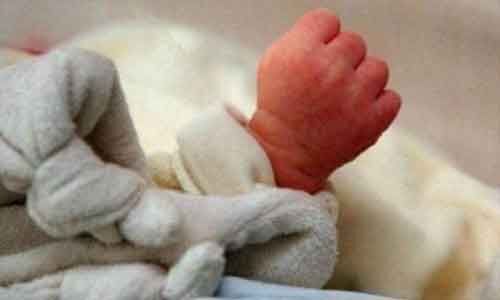- Home
- Medical news & Guidelines
- Anesthesiology
- Cardiology and CTVS
- Critical Care
- Dentistry
- Dermatology
- Diabetes and Endocrinology
- ENT
- Gastroenterology
- Medicine
- Nephrology
- Neurology
- Obstretics-Gynaecology
- Oncology
- Ophthalmology
- Orthopaedics
- Pediatrics-Neonatology
- Psychiatry
- Pulmonology
- Radiology
- Surgery
- Urology
- Laboratory Medicine
- Diet
- Nursing
- Paramedical
- Physiotherapy
- Health news
- Fact Check
- Bone Health Fact Check
- Brain Health Fact Check
- Cancer Related Fact Check
- Child Care Fact Check
- Dental and oral health fact check
- Diabetes and metabolic health fact check
- Diet and Nutrition Fact Check
- Eye and ENT Care Fact Check
- Fitness fact check
- Gut health fact check
- Heart health fact check
- Kidney health fact check
- Medical education fact check
- Men's health fact check
- Respiratory fact check
- Skin and hair care fact check
- Vaccine and Immunization fact check
- Women's health fact check
- AYUSH
- State News
- Andaman and Nicobar Islands
- Andhra Pradesh
- Arunachal Pradesh
- Assam
- Bihar
- Chandigarh
- Chattisgarh
- Dadra and Nagar Haveli
- Daman and Diu
- Delhi
- Goa
- Gujarat
- Haryana
- Himachal Pradesh
- Jammu & Kashmir
- Jharkhand
- Karnataka
- Kerala
- Ladakh
- Lakshadweep
- Madhya Pradesh
- Maharashtra
- Manipur
- Meghalaya
- Mizoram
- Nagaland
- Odisha
- Puducherry
- Punjab
- Rajasthan
- Sikkim
- Tamil Nadu
- Telangana
- Tripura
- Uttar Pradesh
- Uttrakhand
- West Bengal
- Medical Education
- Industry
Blood test could diagnose baby brain damage just hours after birth

An early blood test could detect which babies deprived of oxygen at birth are at risk of serious neurodisabilities like cerebral palsy and epilepsy.
The prototype test looks for certain genes being switched on and off that are linked to long-term neurological issues. Further investigations of these genes may provide new targets for treating the brain damage before it becomes permanent.
The team behind the test, led by Imperial College London researchers in collaboration with groups in India, Italy and the USA, have published their findings today in the journal Scientific Reports.
The research was conducted in Indian hospitals, where there are around 0.5-1.0 million cases of birth asphyxia (oxygen deprivation) per year. Babies can suffer oxygen deprivation at birth for a number of reasons, including when the mother has too little oxygen in her blood, infection, or through complications with the umbilical cord during birth.
Following oxygen deprivation at birth, brain injury can develop over hours to months and affect different regions of the brain, resulting in a variety of potential neurodisabilities such as cerebral palsy, epilepsy, deafness or blindness.
This makes it hard to determine which babies are most at risk of complications and to design interventions that can prevent the worst outcomes.
Now, in preliminary study of 45 babies that experienced oxygen deprivation at birth, researchers have identified changes to a raft of genes in their blood that could identify those that go on to develop neurodisabilities.
The babies had their blood taken within six hours after birth and were followed up after 18 months old to see which had developed neurodisabilities. The blood was examined with next-generation sequencing to determine any difference in gene expression - the 'switching on or off' of genes - between those babies that developed neurodisabilities and those that didn't.
The team found 855 genes were expressed differently between the two groups, with two showing the most significant difference.
Examining these two genes in particular, and what processes their expression causes within cells, could lead to a deeper understanding of the causes of neurodisabilities prompted by oxygen deprivation, and potentially how to disrupt them, improving outcomes.
Lead author Dr Paolo Montaldo, from the Centre for Perinatal Neuroscience at Imperial, said: "We know that early intervention is key to preventing the worst outcomes in babies following oxygen deprivation, but knowing which babies need this help, and how best to help them, remains a challenge."
Senior author Professor Sudhin Thayyil, from the Centre for Perinatal Neuroscience at Imperial, said: "The results from these blood tests will allow us to gain more insight into disease mechanisms that are responsible for brain injury and allow us to develop new therapeutic interventions or improve those which are already available."
The babies were part of a trial called Hypothermia for Encephalopathy in Low and middle-income countries (HELIX), which also examines the use of hypothermia (extreme cooling) on babies to prevent brain injuries developing following oxygen deprivation.
In higher-income countries this is known to reduce the chances of babies developing neurodisabilities, but in lower income settings cooling may not be feasible, and even with cooling 30 percent of babies still have adverse outcomes, so new therapies are still needed.
The team will next expand their blood testing study to a larger number of babies and examine the genes that appear to show the most difference between the groups.
For more details click on the link: http://dx.
Hina Zahid Joined Medical Dialogue in 2017 with a passion to work as a Reporter. She coordinates with various national and international journals and association and covers all the stories related to Medical guidelines, Medical Journals, rare medical surgeries as well as all the updates in the medical field. Email: editorial@medicaldialogues.in. Contact no. 011-43720751
Dr Kamal Kant Kohli-MBBS, DTCD- a chest specialist with more than 30 years of practice and a flair for writing clinical articles, Dr Kamal Kant Kohli joined Medical Dialogues as a Chief Editor of Medical News. Besides writing articles, as an editor, he proofreads and verifies all the medical content published on Medical Dialogues including those coming from journals, studies,medical conferences,guidelines etc. Email: drkohli@medicaldialogues.in. Contact no. 011-43720751


